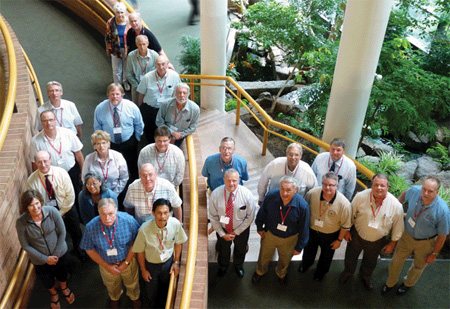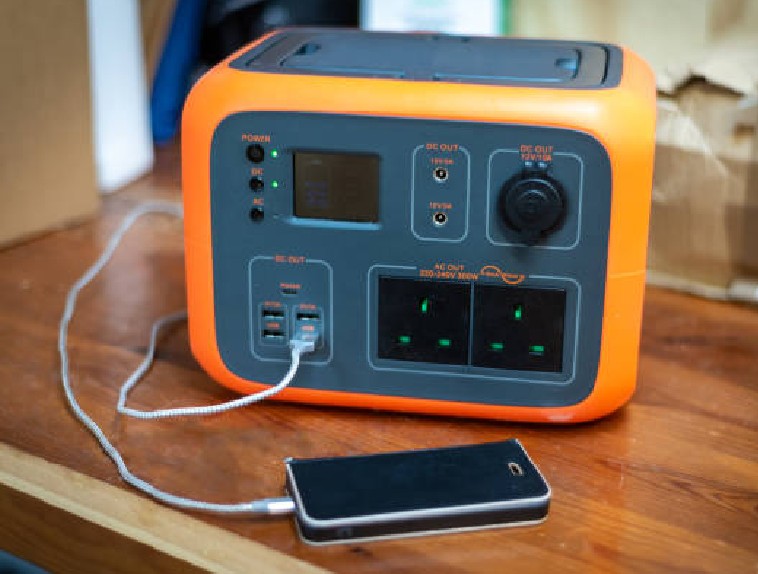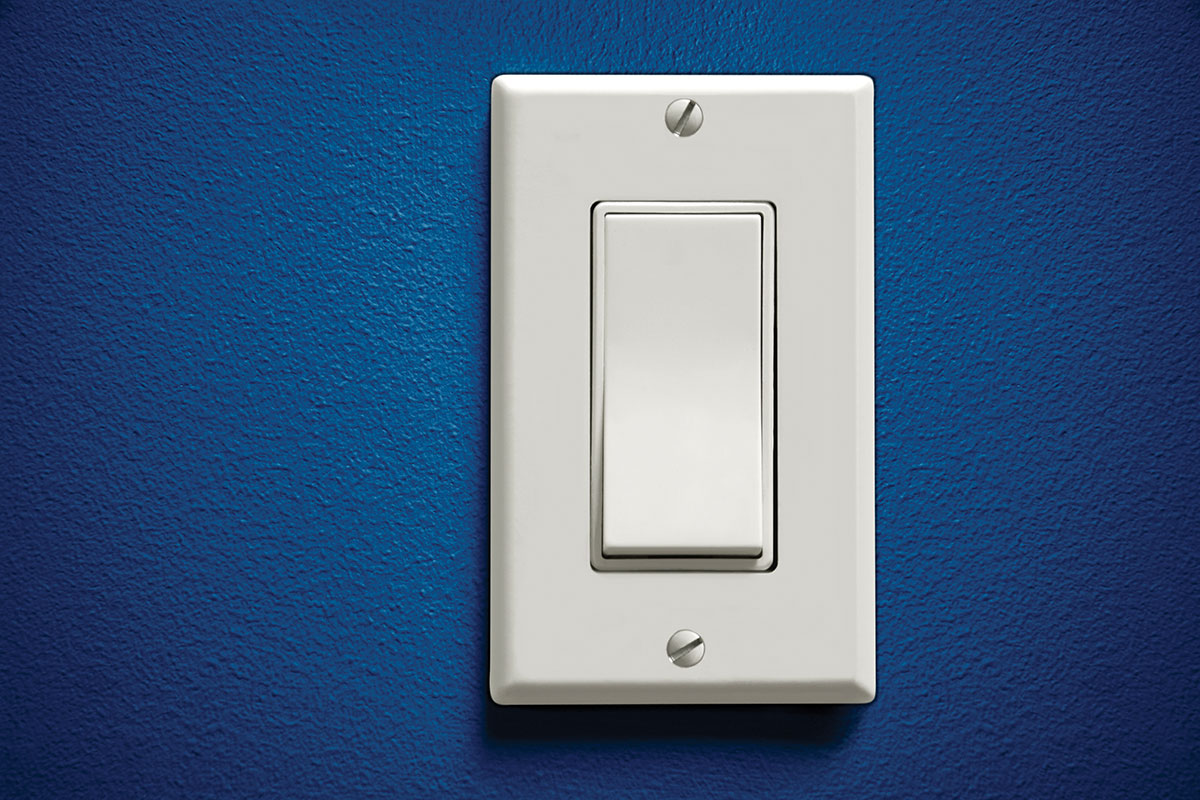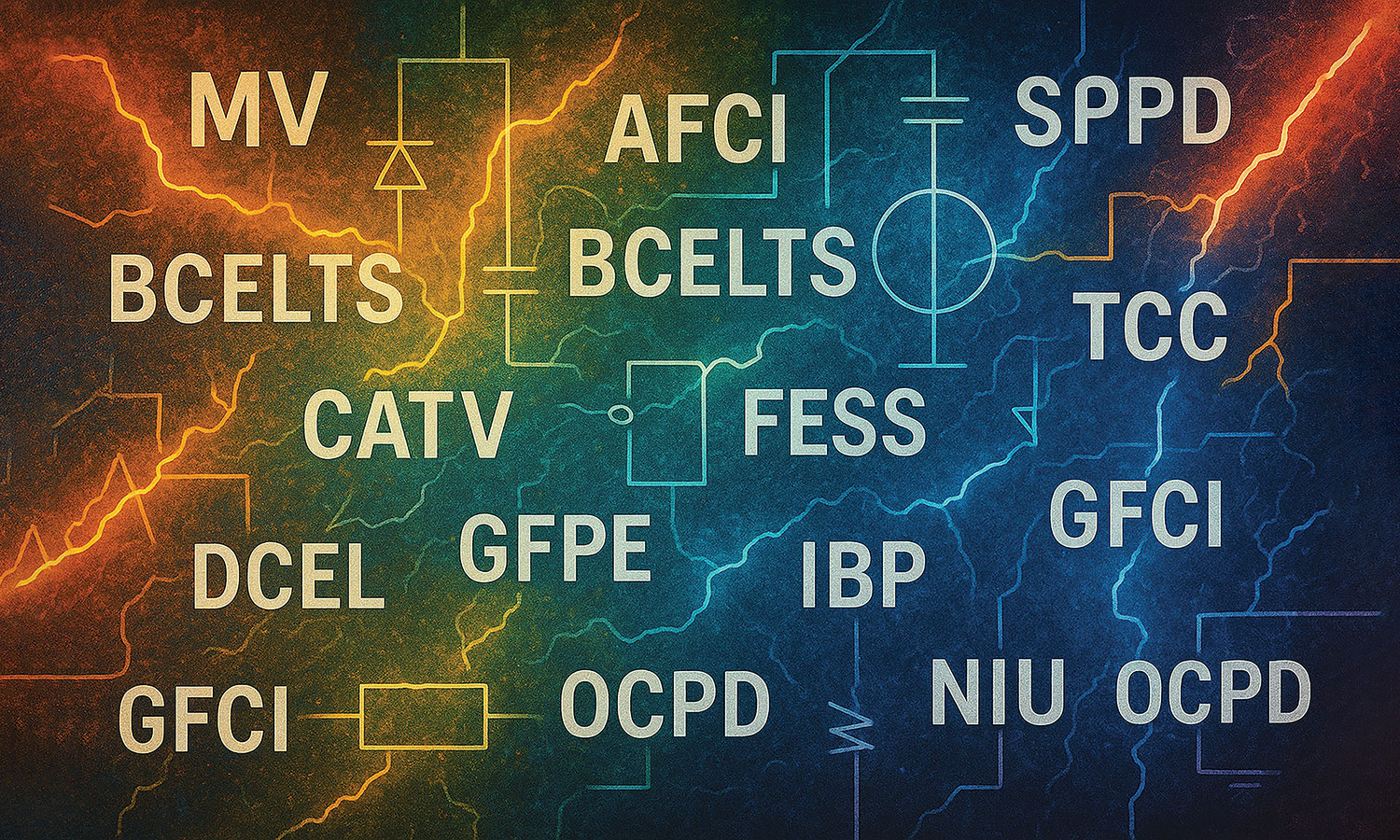NFPA hosted twenty-six authorities having jurisdiction (AHJs) from twenty states and Canada at the 5th NFPA Electrical Inspectors Forum. The common thread linking the Forum attendees is that they are all responsible for and have field experience in inspecting installations and enforcing electrical safety requirements in their jurisdictions (NEC® for the U.S. and the Canadian Electrical Code® for Canada). Attendees represented state, county, municipal provincial and private inspection authorities. Some attendees were supervisors; others were the sole persons in their jurisdictions responsible for electrical code enforcement.

Photo 1. Participants in the 2011 NFPA Electrical Inspector’s Forum held at NFPA Headquarters
2011 Electrical Inspector’s Forum Program
Issues ranging from professional qualifications of inspection authorities to code adoption to facilitating implementation of new electrical technologies were discussed at this year’s Forum. The steering committee developed the 2011 Electrical Inspector’s Forum program around four discussion modules. In addition, two presentations were given by NFPA staff: “Revising NFPA’s Codes and Standards Development Process,” Amy B. Cronin, secretary, NFPA Standards Council and “Fire Protection Research Foundation Projects Supporting the NEC®,” Kathleen H. Almand, P.E., executive director, Fire Protection Research Foundation.
I. Electrician and Electrical InspectorQualifications
In surveying the participants, we learned that most of the jurisdictions from around the country had licensing requirements for both electricians and electrical contractors; however, several had none. Requirements for electricians ranged from licensing the electrical contractor to no specific requirements for the electricians performing the installation, to apprenticeship programs that require 8000 hours of on-the-job training and passing an exam. Many of the jurisdictions that licensed electricians also had continuing education requirements associated with license renewal that ranged from 4 to 12 hours annually. All of the attendees agreed that specific requirements for licensing electricians performing the installations with ongoing continuing education for license renewal result in installations performed in a more code-compliant manner. Some of the states that did not have statewide licensing requirements did have municipal regulations, but this was typically limited to only the larger communities. Installations in smaller communities could be performed by anyone.
The discussion then turned to electrical plan review and to what extent a detailed electrical plan review was performed and what the qualifications were for electrical plan examiners. While large metropolitan jurisdictions utilized specific electrical plan examiners, it appeared that the majority of inspectors present indicated that electrical plan review was conducted by a combination plan examiner with a more detailed electrical review conducted by the field inspector on-site or before the actual construction process began. The consensus among Forum participants was that electrical plan review was typically not the primary area of expertise of combination plan examiners. There appeared to be little or no requirements for specialized continuing education for electrical plan examiners, other than electrical licensing or electrical certification renewal.
Electrical inspector qualifications seemed to be where the most diverse and surprising answers appeared in this module. Inspector qualifications range from having no previous electrical experience to not having any examination requirements, to minimum qualifications as a journeyman/supervisory electrician. While some states had no requirements for electrical inspectors, many municipalities in those states had their own minimum requirements such as holding an electrical license of some type or the ability to pass an electrical certification exam within a specified time period. Continuing education requirements for inspectors varied from a minimum number of hours each year in order to maintain a license or certification to none at all.
Two independent third party private inspection firms were represented at this year’s forum. Previous electrical experience was required for employees of these firms. Private inspection firms may not be afforded the same liability protection as many city and state inspectors are, as they must carry liability insurance or be covered by the company they work for. This alone seems to make previous electrical experience along with continuing education a high priority.
II. Raising the Electrical Inspector’s Profile
In preparation for the 2011 Forum, the Steering Committee discussed ways to raise the profile of the electrical inspectors in their jurisdiction and community. That discussion, like the Electrical Code Coalition discussions revealed that, in many cases, we talk to ourselves while trying to change the perception of management, elected officials, and the public. Based on the discussion, the committee invited Alex Dudchock, the county manager in Shelby County, Alabama, to speak at the Forum.
As he began his discussion, Alex wrote down two words, “resourceful” and “responsive,” which resonated throughout his discussion on inspections. Through a set of prepared questions and open discussion, Alex shared his views related to the values of inspections. As a supporter, he shared how inspections in Shelby County had helped to maintain property values for the taxpayers. He also shared the importance of inspectors continuously seeking opportunities to be a resource for their jurisdiction and for the community. He talked about using the knowledge and skills required to be an electrical inspector to assist in the community. Visibility in the community is important. The discussion revealed that circumstances are not identical in every jurisdiction, but opportunities to provide some type of additional public service exist everywhere. While providing quality inspections in an efficient manner will always be the top priority, we should all be looking for opportunities to contribute in additional ways. While it may take some time for others to realize the value of those additional opportunities, inspectors should continue to identify ways they can contribute and volunteer.
Alex was able to see the value to local governments as their electrical inspectors are able to share their experiences, both challenges and successes, with peers from across North America. The mix of public and private inspectors, working for cities, counties, states, and provinces including small and large jurisdictions provides a great experience. The format of the Forum, with structured daily discussion modules and additional networking time in the morning and evening provided great opportunities for inspectors and NFPA staff to network. While each discussion module is led by facilitators, the success of the Forum is the result of open and active discussion by all participants.
As inspectors become an electrical resource and servants in their community, they will raise their profile. As discussed at the 2010 Forum, inspectors have opportunities every day to serve their community.
III. Building a Local Code Coalition
This module addressed the need to develop a grass roots effort for promoting code adoption and other matters related to the electrical industry. A “Coalition Toolbox” of information was provided to attendees that will aid in meeting this objective, such as the ability to guide local support on adoption processes. Providing basic tools will help bridge the industry and will provide a unified voice across a large cross-section of different organizations interested in electrical safety and supporting activities that affect the electrical industry.
The discussion opened with an overview and background of the Electrical Code Coalition. Summarized in the July/August issue of IAEI News, the Electrical Code Coalition’s objective is to increase industry focus and emphasis on electrical safety though quality electrical inspections and supporting direct adoption of theNational Electrical Code®. Included with the toolbox were copies of updated proclamations supporting this initiative.
Discussion then focused on bringing the concept of a coalition of national electrical organizations to the local level. Support from the Electrical Code Coalition illustrates a unified front on the national level and developing a local coalition provides a local perspective to matters affecting the local industry and will help bridge the gap between the inspection community and the industry by developing relationships.
A plethora of information was included in the coalition toolbox. These resources are aimed at helping local and state jurisdictions pull together to support matters affecting the electrical industry. Some examples of what representation might look like, such as the local inspector, local/state fire fighter’s association, local union and non-union contractor organizations, as well as key manufacturing representatives were included as examples to help guide the formation of a local coalition. Examples of the information included in the coalition building toolbox include:
- Database with list of key electrical and other supporter contacts
- Database/matrix of multi-year adoption date history
- Supporting documentation such as news articles/videos, code adoption map for the U.S., a cost analysis for the 2011 and any other publications/documents (safety related, Green Technology info, etc.) that would be helpful at the local level
- Checklist of suggested steps to get a local coalition off the ground
IV. Green Technology and the Electrical Inspector, Become the Community Green Machine
The current trend of green energy sources, green appliances, and electric cars presents the average property owner with an abundance of information, but a minimal understanding of what it all means to them. Green technology provides the electrical inspector with an opportunity to raise his or her profile within the community by becoming the community point person to bridge the consumer knowledge gap surrounding these technologies. The discussion in this module was centered on developing a proactive rather than reactive approach to green technology that inspectors can use in their community/jurisdiction. It is necessary to ensure that the inspection process is not perceived as a roadblock or an unnecessary expense or a burden to the implementation of renewable energy technologies. The bottom line is to make sure that the increased emphasis on the use of green technology does not become a reason for bypassing the safety inspection process.
The discussion began with a discussion of current practices for permitting and inspecting of electrical vehicles (EV) and photovoltaic (PV) installations in the jurisdiction represented at the Forum. At least one jurisdiction provides same-day service for permits taken out on electric vehicle charging equipment. Some of the attendees indicated there was pressure exerted on them to expedite inspection of green technology installations. A segment of the module had groups of attendees working on solutions/tools that can be used by inspection departments to educate the electrical industry, regulators, and the general public on code-compliant installations and the importance of inspections. During this breakout session the groups worked on the discussion questions.
In general, it appears that many of the jurisdictions represented were taking a proactive approach to green technology installations and had modified existing inspection processes to accommodate customer needs. As was discussed during this module, the installation of electric vehicle charging equipment has a heightened urgency due to the fact the people need their automobiles to be functional as soon as they have them. EVSE differs from an appliance or other piece of equipment in that in many cases, its operation is essential to a person’s daily life whether it is getting to work, transporting kids to school, or some other task involving transportation.
Summary
A survey was sent to this year’s Forum participants and the overwhelming response was that the discussion modules provided a beneficial learning experience. Also high on the list of beneficial aspects to the Forum was the opportunity to professionally and socially network with their professional colleagues. Nearly unanimous among the respondents was the sentiment that despite having no idea what this meeting was going to be about (as it was not the typical inspector’s meeting agenda), they came away from the Forum with information that will help them do their jobs. Some of the comments were:
“I feel much less of an island and more part of the big picture. I am more willing to share my viewpoint with the powers that be, and I’m more patient in relaying the importance of our work to those who would discount the value of Code enforcement”
“The presentation by the Shelby County official reinforced the concept of positively providing assistance to the public can actually empower the inspector and turn code enforcement from an often adversarial to a positive approach. A positive approach increases the likelihood of the customer obtaining permits and installing in a code-compliant manner.”
“The opportunity to network with other inspectors from around the nation is an extremely valuable tool. This meeting reveals that in many ways jurisdictions from around the nation are very much alike with common goals and concerns. How these jurisdictions are addressing these issues such as adoption of energy codes, for example, provides an insight to dealing with these issues at home.”
“It was an honor to be invited and to sit in a room with so much talent. While all of us perform essentially the same function, it is fascinating to learn how much the job differs from state to state. It was interesting to learn about the variations in laws and procedures in other areas of the country. Learning about possible self-certification of electric vehicle charging installations was eye-opening and frightening.”
“Alex Dudchock’s discussion on how to be a visible asset to the community was very informing. I can use the ideas that he discussed to improve the public perception of who inspectors are and what they do for the public.”
“The Forum is the only venue available for peer discussion and review of topics other than technical issues.”
In addition, Forum participants were asked to submit suggestions on topics for future Forums. Many great ideas were generated from this question and it is apparent that there is no shortage of discussion topics that are important to electrical inspectors.
Based on these and other comments it is obvious that these highly technical people also value an opportunity to discuss other relevant issues with their professional colleagues and the NFPA Electrical Inspector’s Forum is providing that venue. Supporting these important members of the electrical safety system is important to NFPA. Plans are already underway for the 6th NFPA Electrical Inspector’s Forum which will be held in July 2012.
History and Mission of the NFPA Electrical Inspector’s Forum
The first NFPA Electrical Inspector’s Forum was held in 2006 and has been held each subsequent year except 2009. The purpose of the Forum is to bring individuals responsible for enforcing electrical safety requirements together to discuss topical issues related to code enforcement. The goal of the Forum discussion is to provide attendees with the opportunity to discuss important issues and to share experiences with their professional colleagues in order to help them do their important jobs better. This meeting provides an opportunity for network building amongst inspectors from all over the U.S. and Canada. The importance of electrical inspection is well understood within the electrical industry. However, the recent trend toward less government regulation has taken a toll on electrical inspection activities across the country and electrical inspection positions are being eliminated or significantly watered-down. This trend may not immediately manifest itself as dangerous, but in the long-term, continued erosion of electrical inspection will lead to unsafe installations.
The NFPA Electrical Inspector’s Forum mission is to support the important public safety role of electrical inspectors by:
- Providing electrical inspectors and building officials who are responsible for enforcing electrical safety requirements with the opportunity to discuss job‐related administrative, political, communication, presentation, certification, educational, organizational, and similar topics.
- Identifying the needs of the enforcement community and developing action items to provide training and support for job‐related topics that are not typically covered at technical meetings, seminars or conferences.
Jeffrey S. Sargent is NFPA Regional Electrical Code Specialist.
Steering Committee
David Clements, IAEI CEO and Executive Director
Donny Cook, Shelby County, Alabama
Mark Earley, NFPA Chief Electrical Engineer
Tim McClintock, NFPA Regional Electrical Code Specialist
William McGovern, Plano, Texas
Jeff Sargent, NFPA Regional Electrical Code Specialist
David Williams, Delta Township, Michigan
Discussion Leaders
Module I. Bill McGovern and Dave Williams
Module II. Donny Cook and Alex Dudchock
Module III. Donny Cook and Tim McClintock
Module IV. Dave Clements and Jeff Sargent











Find Us on Socials